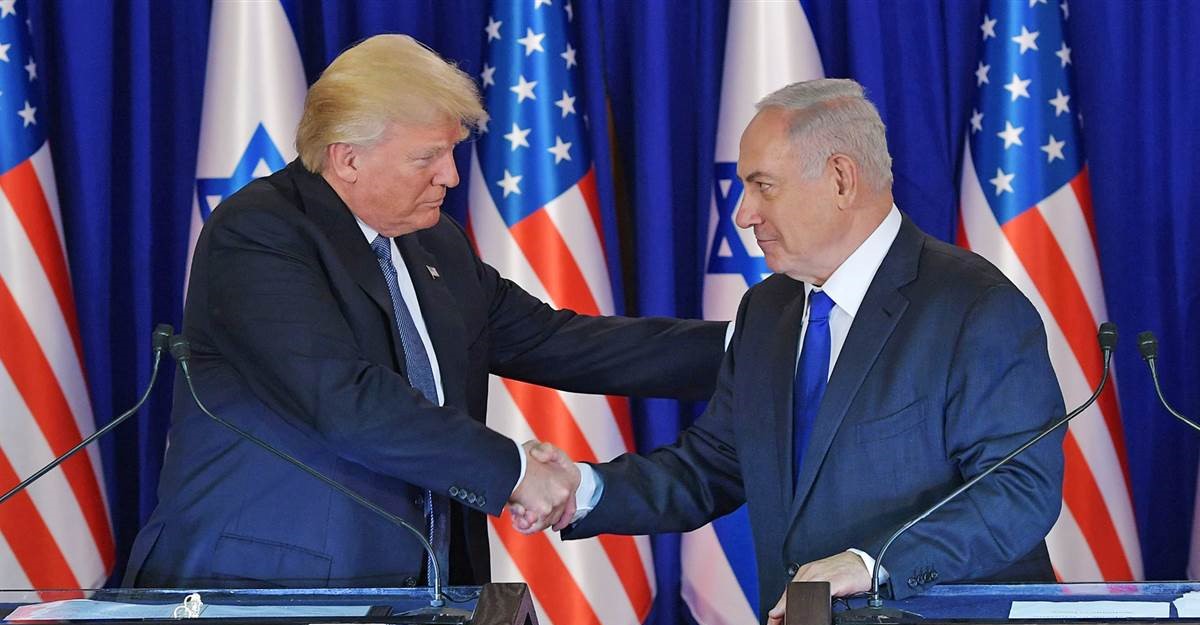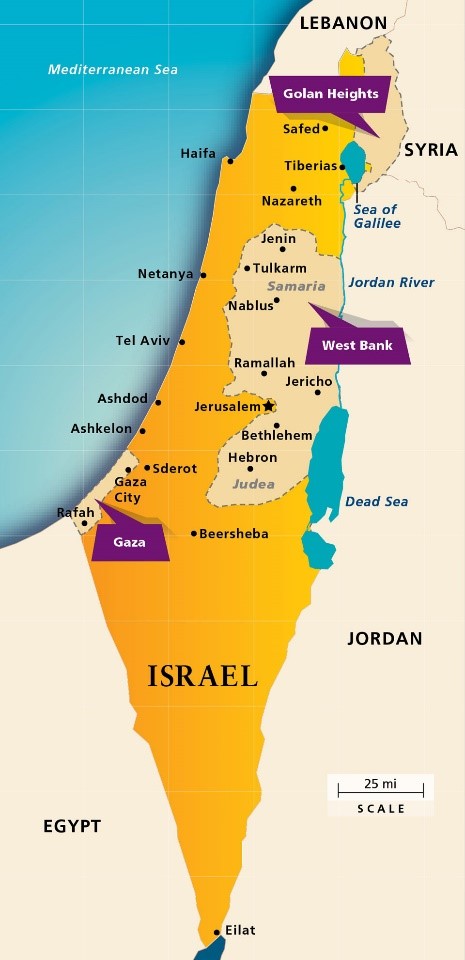Israel-Palestine Peace Process
August 8, 2018 | Expert Insights

Peace talks between Israel-Palestine administered by the Trump administration are faltering.
Background
Israel is a country in the Middle East, bordered by Lebanon, Syria, Jordan and the Mediterranean Sea. The area has a rich history that dates to the pre-biblical times and was a part of the Roman and then the Byzantine empires, before falling under the Islamic Caliphate in the seventh century. The region then was an Islamic region known as Palestine until the fall of the Ottoman Empire following World War I, after which it fell under the British Mandate from the League of Nations.
The desire for a Jewish homeland prompted a few Jews from around the world to migrate to Palestine even before the mandate, but later this migration increased ten-fold owing to the Holocaust and increased persecutions of Jews worldwide. This vast inflow of Jews into Arab territory caused a lot of violent tension between the two communities and led to the United Nations partition plan for the region into Jewish and Arab territories, thus giving rise to a new nation called Israel in the year 1948. Following the declaration of this statehood, several wars such the Six-Day war took place between these regions, the conflicts of which continue till present time. Israel currently occupies the West Bank, Gaza Strip and the eastern part of Jerusalem. The old city of Jerusalem is also home to the Temple Mount or the Al Aqsa Mosque a holy site for both the Jews and Arabs and the main point of conflict between these two lands. The Temple Mount was initially controlled by the Israelis’ till they handed it back to the Waqf board after the Six-Day War, but the Israeli troops continued to keep security troops around the Mount.
To ensure peace in the region several peace accords have been signed such as the UN Security Council Resolution 242, 1967 which called for the withdrawal of Israeli armed forces from territories occupied in the recent conflict. The Camp David Accords of 1978, The Oslo Agreement, 1993, this agreement was the first where both Israelis and Palestinians spoke directly, and it was agreed that Israel would withdraw its troops from the West Bank and Gaza Strip.

Analysis
Donald Trump’s hopes of delivering the “ultimate deal” to resolve the Israeli-Palestinian conflict are foundering, amid mounting Arab alarm that the US’s proposals will be tilted too far in Israel’s favour. The major reasons for the faltering are, first - declaring Jerusalem as Israel’s capital and moving the American Embassy there. Secondly, White House senior adviser Jared Kushner who is waiting to release the peace agreement has been requested by the Palestinians to not release it as it will cause more unrest in the region.
As a part of the Peace project, the US has planned to revoke the UNRWA from the Palestinian regions. This has enraged the Palestinians further as they say that by revoking this agency the US is “realising Israel’s dreams”. They say this because Israel has on several occasions held the UNRWA responsible to support terrorist activities in Palestinian refugee camps. If the US comes forth with this revocation it will further make peace in the region an uncertain event. Thirdly, in the peace agreements, the US is planning to announce Abu Dis as the capital of Palestine and let the Israeli troops continue to be present in the occupied West Bank. These agreements are a non- starter for the Palestinians.
Since the declaration of Jerusalem as the capital of Israel, the US may have lost the Palestinians who have now refused to come to the table for any type of peace talks. The Palestinians are concerned that the proposed peace agreement by the US will favour of the Israelis more.
Counterpoint
Britain has asked the US to show more understanding of the situation in the Israel- Palestine conflict after the latter’s decision to announce Jerusalem as capital caused violent attacks in surrounding areas.
Several Arab diplomats have also expressed concerns stating that the US’s plans will be lopsided and will have to be rejected by all the parties.
Assessment
Our assessment is that the US should be more circumspect while dealing with this issue. They should factor in the interests of both the parties to ensure that the formula will support lasting peace. We also feel that the US government should have a better comprehension of historical events in the region if it wishes to be a non-partisan mediator.








Comments